Lyricist Bernie Taupin reflects on a life with Elton John
In the 1960s, when Elton John was a back-up musician for British blues singer Long John Baldry, he was briefly engaged to a woman.
In a new memoir, Elton’s close friend and longtime lyricist, Bernie Taupin, describes this as a time of confusion for the singer that culminated in a potentially tragic incident.
Taupin, who seemed to recognize that Elton was gay years before Elton did, writes in “Scattershot: Life, Music, Elton, and Me” (Hachette) that Elton became friends with a young
woman named Linda Woodrow, and that he somehow came to see it as more than just a friendship.
“At a time when he was unsure of his own sexual orientation and how to distribute his pent-up love, it was extraordinary to watch him approach a traditional heterosexual dance,” Taupin writes. “I truly don’t think he knew what hit him and was just swept up in the accepted normality of it all.”
But Elton couldn’t hide the truth of his own sexuality from himself for long.
“It all changed with an intervention after Elton, in a staged cry for help, opened all the windows, stuck his head in the gas oven, and awaited a dramatic response,” writes Taupin.
“Perhaps due to the unorthodox nature of the attempt, gas on low and an embroidered pillow to rest his head on, sympathy was not forthcoming. Obviously not the reaction he craved, I laughed out loud while [Linda Woodrow] merely looked down at him, rolled her eyes, and walked out.”
Later that night, Taupin and Elton met up with Baldry, a gay man who delivered what Taupin calls “the gay equivalent of the Gettysburg Address.”
Elton’s 1975 hit “Someone Saved My Life Tonight” presented a fictionalized version of this evening, which resulted in Elton making himself a single man the following day.
While Taupin provides insight in the book on his close friendship and remarkably successful collaboration with Elton John, which produced over 50 Top 40 hits, he also uses this book to advance his own celebrity bona fides, making it clear that he partied as hard as any rock star.
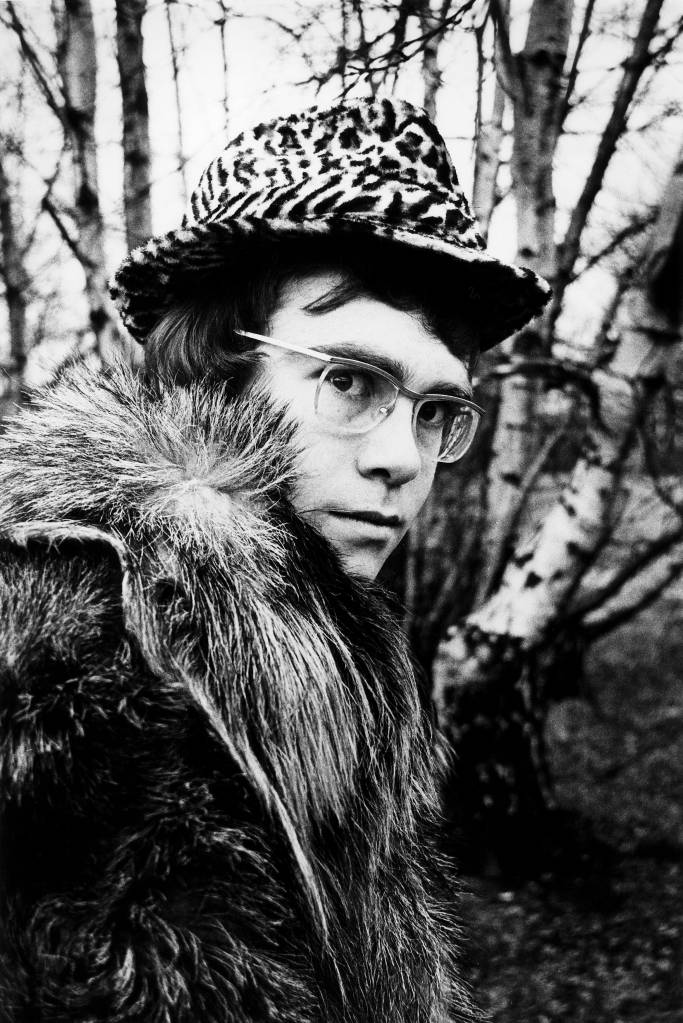
Taupin was a founding member of the Hollywood Vampires, a notorious celebrity drinking club founded in the 1970s by Alice Cooper that also included Mickey Dolenz, Ringo Starr, Harry Nilsson, Keith Moon, and, during his infamous lost weekend in LA, John Lennon.
Taupin’s LA home was party central for this crew and others, with seemingly all of hard-partying Los Angeles making an appearance.
“I’d thrown out Chevy Chase for being a total d–k, and watched Timothy Leary spend the best part of an evening talking to my jukebox,” writes Taupin.
“On one occasion, the wonderful English actor John Hurt stood on my coffee table reciting the ‘gravedigger scene’ from ‘Hamlet’ using a snow globe as Yorick’s skull.”
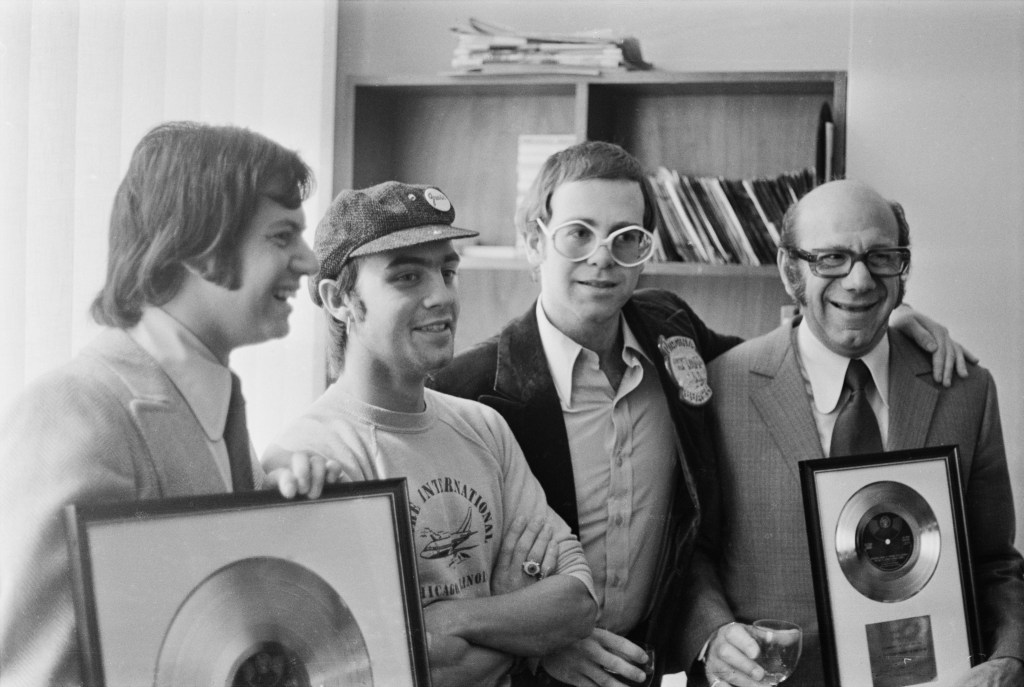
At the time, Taupin was a prodigious consumer of Jose Cuervo tequila.
While he has no memory of this himself, Ringo — who would turn up to his house with Moon to wreak havoc at any hour of the day or night — later recalled how Taupin grew “despondent” after hearing a rumor the brand would be discontinued.
“Ringo claims he turned up at my house a few days later to find my hallway stacked from floor to ceiling with several dozen cases of the stuff,” Taupin writes. “In a panic, I’d called every local liquor store and purchased all the surplus stock I could find.”
The rumor turned out to be false.
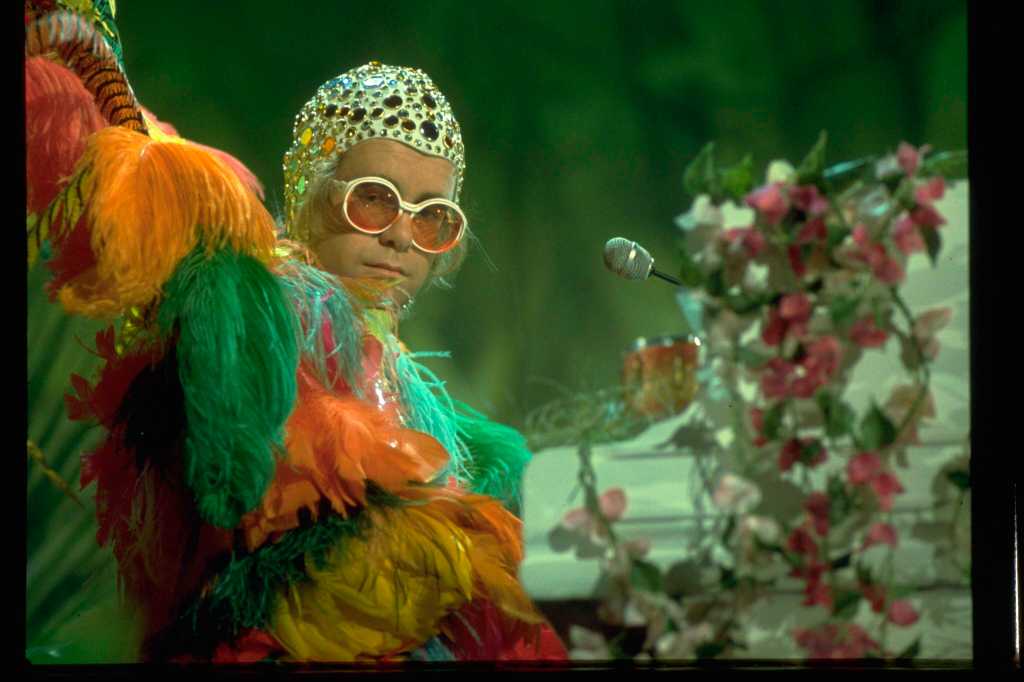
Taupin also became “joined at the hip” with Alice Cooper, especially after collaborating with him on “From The Inside,” Cooper’s 1978 concept album about his stay in a sanitarium to recover from alcoholism.
But Taupin confesses here that after his old drinking buddy cleaned up, Taupin caused his next addiction.
“When he returned from rehab clean and sober, I inadvertently introduced him to [cocaine],” writes Taupin. “The addictive personality in Alice took to it like a duck to water, and although it was in minor quantities at first, the damage was done.”
Cooper turned Taupin on to freebasing soon after, and the depth of the addiction led to a temporary fracture in their friendship. (Cooper got clean with his wife’s help, and has now been drug-free for decades.)
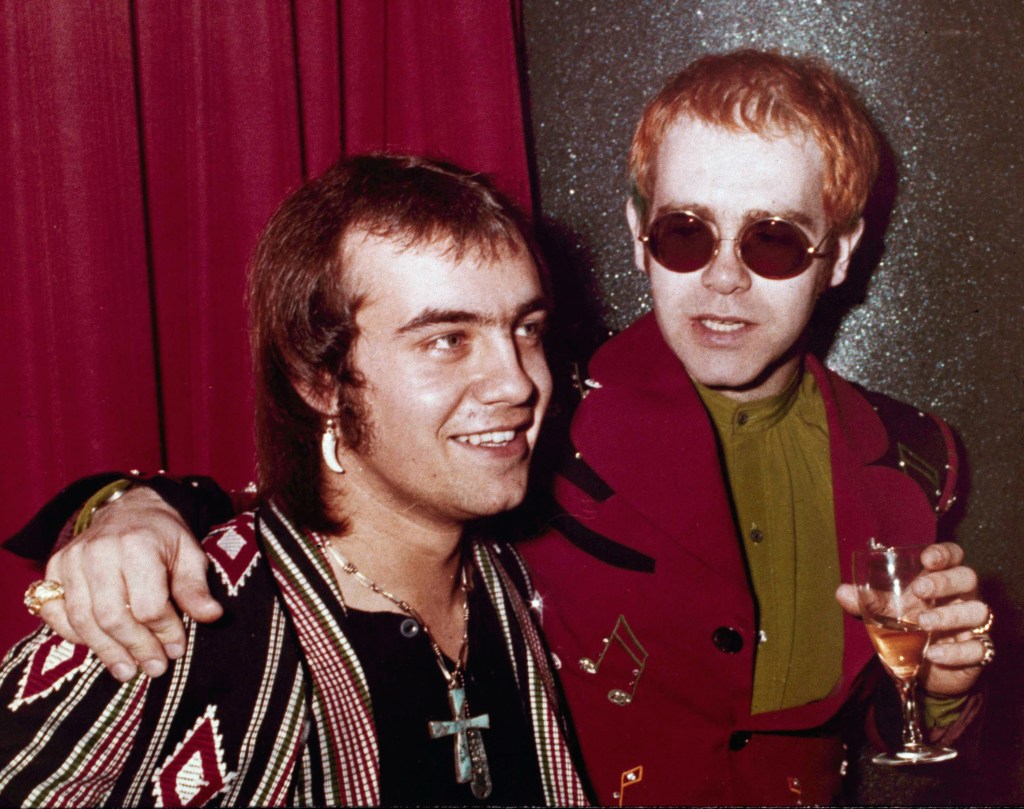
Taupin also recalls how, in 1974, Elton sang and played piano on Lennon’s single, “Whatever Gets You Through The Night,” and bet the Beatle legend that the song would hit #1.
When this happened, Lennon had to appear on stage with Elton at Madison Square Garden.
Taupin notes that Lennon, who hadn’t performed live in years, was so nervous that he was throwing up before the show, and could be seen physically shaking with his guitar in hand.
“I’m standing next to him in the wings, ready to propel him physically onto the stage should he book out and attempt a runner,” Taupin writes.
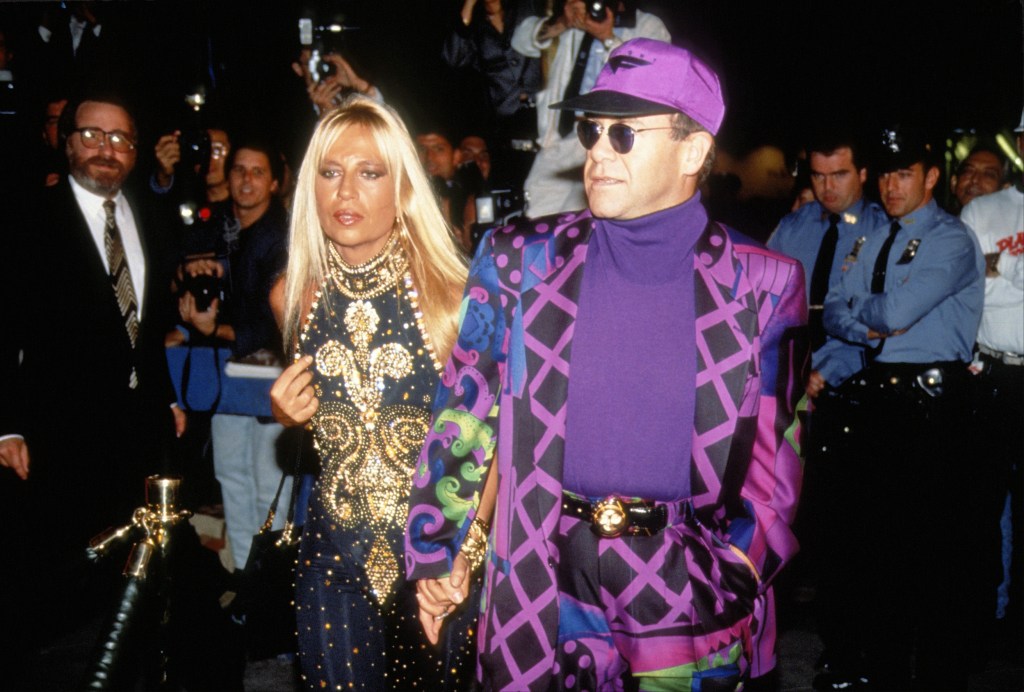
“As Elton begins his introduction, John begins to plead. ‘You have to come out with me.’”
Taupin himself only being comfortable behind the scenes, he replied, “And do what?”
With Taupin offering no help, Lennon took the stage to thunderous applause for what would become his last-ever live performance.
Taupin reconnected with Lennon in LA the following year.
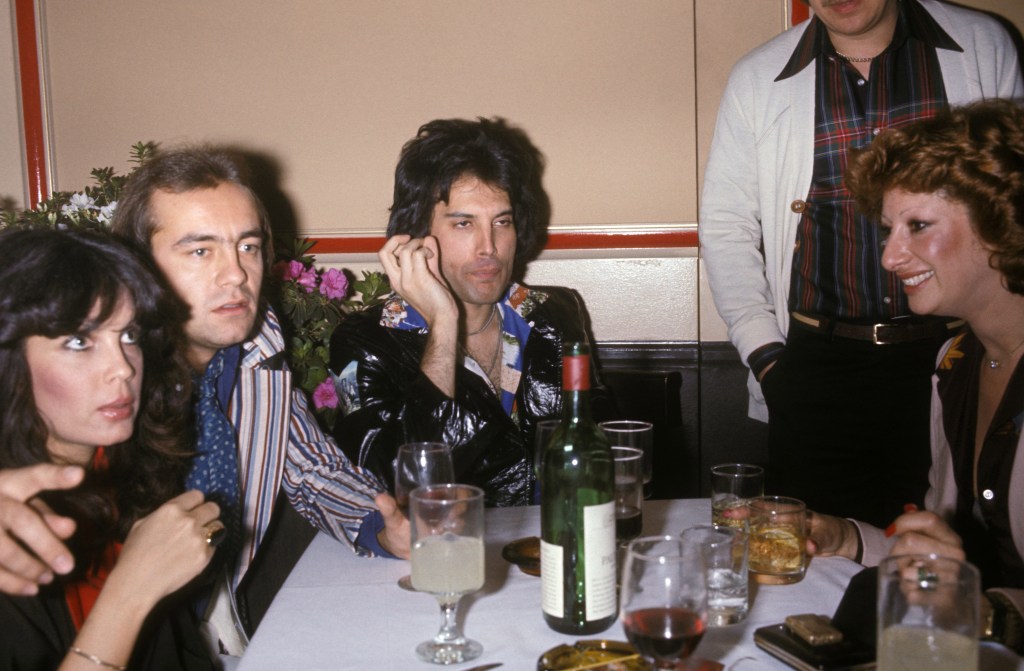
He vaguely recalls a night when the pair sequestered themselves in On The Rox, a (then)-secret celebrity hideaway upstairs from The Roxy.
“Messrs. Lennon and Taupin are settling into a nice cozy corner when up the stairs and through the velvet curtains saunters Bob Marley, trailing in his wake the Wailers and what appears to be half the population of Kingston,” Taupin writes.
“It’s a surreal scene kicked up a notch when Marley reaches into his shoulder bag and produces a spliff the size of a baby’s arm. John and I soon found ourselves encircled by a fierce tsunami of wicked-ass ganga. John looked at me, and I looked at John, but no words were forthcoming, our vocal cords on pause, our tongues in limbo.”
A few days later, the pair met up to attend a party at the home of Dean Martin’s ex-wife, Jeanne Martin.

At one point, The Beach Boys’ Brian Wilson sat beside Taupin, imploring him to make an introduction to Lennon.
Wilson and Lennon spoke, and then Lennon and Taupin were off to a different section of the house.
So Taupin was disturbed when Wilson approached him again just a few minutes later and excitedly asked again if he could meet Lennon, a request the star obliged as if for the first time.
This was repeated four times.
The anecdote would leave a depressing taste except for Taupin noting that over thirty years later, he spent time in a recording studio with Wilson as the Beach Boy “stacked a twenty-part harmony on our 2010 song ‘When Love is Dying’ with as little effort as it takes to blow smoke.”
“What did he ask for in return? ‘A really big hamburger.’ Yes, genius unquestionably,” Taupin writes.
Taupin’s celebrity friendships were not limited to the music world.
Spending time with tennis legend Billie Jean King, Taupin notes that she had “attempted to turn me from a scrawny rock ’n’ roll miscreant into an agile and bronzed athlete,” and that this was “the only time Billie Jean King has ever failed at anything.”
Taupin recalls hanging out at a popular New York drag bar called the Gilded Grape one night with Queen singer Freddie Mercury and King.
The three spent the night calmly sipping champagne until two drag queens got into a fistfight that ended up on their table.
“Sequins scattered, wigs went flying, and mascara and tears ran in rivulets,” Taupin writes. “While I was mildly amused, Freddie was positively ecstatic, getting into the spirit of things by egging them on with a gleeful commentary of camp encouragement.”
This lasted until the table suddenly collapsed, at which point the two fighters stood, embraced as if it had never happened, and went about their night.
In the midst of these celebrity tales, Taupin is not shy about calling out those he was less than impressed with.
Turning his feelings on original “Saturday Night Live” cast members into a theme, he writes that he once punched John Belushi “out cold” for insulting his girlfriend, an event that impressed Belushi so deeply that the TV star called the next day to apologize.
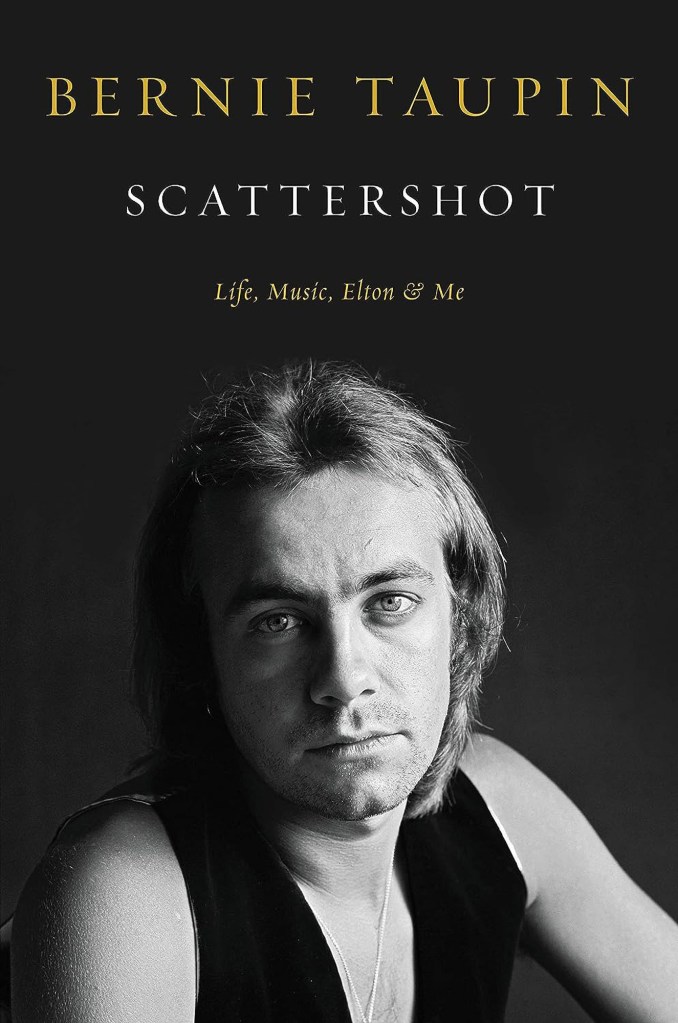
And despite deep friendships with Ringo Starr and Keith Moon, his drummer love dried up for Led Zeppelin icon John Bonham, an “aggressive drunk” who, even in the bad behavior business of rock and roll at the time, Taupin said crossed the line between juvenile poor taste and habitual cruelty.
“Along with the band’s manager, Peter Grant, a completely horrible man, the two made for a pair of ogreish bullies who could suck the air out of a room with their intimidating presence,” Taupin writes. “Years later, Bonham was so despicably brutish to a dear friend of mine that cutting him any slack has never been forthcoming.”
Read the full article Here


